Wisconsin Court of Appeals
Civil
Civil Procedure — wrongful debt collection — attorney fees
Susan M. Wilbrandt appeals a judgment ordering Chase Auto Finance Corporation to pay her lawyer, Gwendolyn Connolly, $107,470 in attorney fees because Wilbrandt was the prevailing party in this wrongful debt collection case. Wilbrandt argues that the circuit court misused its discretion in determining that the prevailing market rate for Connolly’s services was $300 per hour rather than the $425 per hour she sought. We affirm. This opinion will not be published.
2012AP2726 Wilbrandt v. Chase Auto Finance Corp.
Dist I, Milwaukee County, Seifert, J., Per Curiam
Attorneys: For Appellant: Connolly, Gwendolyn G., Milwaukee; For Respondent: Porter, Richard H., Milwaukee; Mishlove, Michael, Milwaukee
Wisconsin Court of Appeals
Civil
Property — landlord-tenant — security deposits — standing
Pete and Barb Mercier appeal a summary judgment dismissing their small claims action against Katia Properties, LLC, for failing to return a security deposit or provide an accounting of the deposit. The circuit court granted summary judgment in favor of Katia because the Merciers expressly agreed in their lease that the deposit would be returned to ALE Solutions, Inc., which was the entity that paid the deposit. We conclude the Merciers lack standing to maintain their claim against Katia, and we affirm. This opinion will not be published.
2013AP2246 Mercier v. Katia Properties LLC
Dist III, Outagamie County, Dyer, J., Mangerson, J.
Attorneys: For Appellant: Konz, Michael P., Appleton; For Respondent: Anderson, Timothy B., Neenah
Wisconsin Court of Appeals
Civil
Insurance — retiree health plans
The City of Eau Claire and L.E. Phillips Memorial Public Library (collectively, the Library) appeal from a judgment and an order in favor of Steven Stoflet. The circuit court concluded Stoflet, a former Library employee, was entitled to health insurance benefits under the Library’s written policy on retiree health insurance. We conclude the policy is ambiguous. We therefore construe the policy against the drafter, the Library, and conclude Stoflet is entitled to coverage. Accordingly, we affirm. This opinion will not be published.
2013AP2049 Stoflet v. City of Eau Claire, et al.
Dist III, Eau Claire County, Theisen, J., Per Curiam
Attorneys: For Appellant: Steffes, Ryan, Eau Claire; For Respondent: Stoflet, Steven, pro se
Wisconsin Court of Appeals
Civil
Insurance — UIM coverage — reducing clauses
Timothy Myers appeals an order for summary judgment granted in favor of his car insurer, American Family Mutual Insurance Company. The circuit court concluded Myers was not entitled to underinsured motorist (UIM) coverage under the American Family policy, by virtue of the policy’s reducing clause and its definition of the term “underinsured motor vehicle.” Not recommended for publication in the official reports.
2013AP2045 Myers v. American Family Mutual Insurance Co.
Dist III, St. Croix County, Cameron, J., Stark, J.
Attorneys: For Appellant: Parsons, Robert A., River Falls; For Respondent: Morris, Fred L., Eau Claire; Steffes, Ryan, Eau Claire
Wisconsin Court of Appeals
Civil
Insurance — motorcycle policies — ownership
Lori J. Olson appeals a judgment of the circuit court granting summary judgment in favor of Allstate Property and Casualty Insurance Company (“Allstate”). We reverse and remand for further proceedings consistent with this opinion. Not recommended for publication in the official reports.
2013AP1589 Olson v. Artisan and Truckers Casualty Company, et al.
Dist IV, Columbia County, George, J., Kessler, J.
Attorneys: For Appellant: Hahn, Jason F., Madison; For Respondent: Scholl, Amy F., Madison; Scipior, Vincent, Madison
Wisconsin Court of Appeals
Civil
Torts — safe place statute — structural defects — control of the premises
This case involves Wisconsin’s safe-place statute, Wis. Stat. § 101.11 (2011-12). Kenneth R. Taylor and Julie Taylor, the Estate of Kevin Kadrlik and Kadrlik’s surviving wife and children, and Robin Weibel and Michelle Weibel (collectively, the Taylor plaintiffs) are co-appellants in this consolidated action. We affirm the order granting summary judgment in favor of Cedar Falls Building Systems, Inc., and its insurer, Selective Insurance Company of South Carolina (collectively, Cedar Falls), and dismissing the Taylor plaintiffs’ safe-place statute and common-law negligence claims. This opinion will not be published.
2013AP1194 Taylor v. Cedar Falls Building Systems Inc., et al.
Dist III, Eau Claire County, Stark, J., Per Curiam
Attorneys: For Appellant: Bye, Charles M., River Falls; Heidt, Martha H., River Falls; For Respondent: Waldeck, Peter M., Minneapolis, MN; Fricker, Matthew T., Hartford; Waldeck, Peter M., Minneapolis, MN
Wisconsin Court of Appeals
Civil
Property – foreclosure — prima facie case
Robert Nelson and Hiroko Nelson appeal an order of the circuit court granting summary judgment in favor of U.S. Bank, National Association in this mortgage foreclosure case. On appeal, the Nelsons argue that the affidavits submitted by U.S. Bank in support of its summary judgment motion fail to aver that the affiants have personal knowledge of the procedure by which the records attached to the affidavit were created. For the reasons set forth below, we reverse the order of the circuit court. This opinion will not be published.
2013AP755 US Bank NA v. Nelson, et al.
Dist IV, Dane County, Remington, J., Per Curiam
Attorneys: For Appellant: LaCava, Susan, Madison; For Respondent: Wronski, Andrew J., Milwaukee; Quirk, Brian M., Wauwatosa; Blise, Rachel M., Milwaukee
Wisconsin Court of Appeals
Civil
Family — contempt
Sara M. Marcott appeals a circuit court order finding her in contempt of court for violating that part of the judgment of divorce that awarded her and her ex-husband, Lonnie, joint legal custody of their two minor children. The court found Sara in contempt because she moved the children from a school in the Greenwood school district to a school in the Auburndale school district without Lonnie’s consent.
On appeal, Sara contends that the circuit court erred in making its contempt finding because: (1) she was the “primary caretaker” of the children, pursuant to Wis. Stat. § 767.41(6)(c), and therefore she had “primary rights regarding the children’s education” and Lonnie only had “residual parental rights;” (2) a party cannot “be held in contempt for a purported violation of a statutory provision not specifically incorporated into an order” of the court; and (3) the circuit court failed to properly apply the law to the facts of this case. For the reasons we explain below, we reject Sara’s arguments and affirm. This appeal will not be published.
2013AP96 In re the Finding of Contempt in re the Marriage of Marcott v. Marcott
Dist IV, Clark County, Counsell, J., Higginbotham, J.
Attorneys: For Appellant: Grace, David L., Wisconsin Rapids; For Respondent: Wachsmuth, Bonnie, Owen
Wisconsin Court of Appeals
Civil
Property – easements — riparian rights
This dispute centers on a deed conveying an interest in a twenty-foot easement abutting Green Lake in Green Lake County. This case was before us in a first appeal, where we reversed the circuit court’s grant of summary judgment to Robert D. and Ann M. Konneker and denial of summary judgment to Robert and Francis Romano. On a petition for review, the Wisconsin Supreme Court found the deed creating the easement to be ambiguous as to the use and purpose of the easement, and, after considering the summary judgment materials, concluded that there was a genuine issue of material fact concerning whether the parties to the deed intended to grant “riparian rights including the right to construct and maintain a pier.” Konneker v. Romano, 2010 WI 65, ¶¶3, 30, 326 Wis. 2d 268, 785 N.W.2d 432. The supreme court reversed and remanded this case to the circuit court to consider extrinsic evidence to ascertain the original parties’ intent. A trial was held to the court and the court found that the parties to the deed intended to “grant boat access including the use of a pier,” and entered judgment in favor of the Konnekers.
The dispositive issue we address on appeal is whether the record supports the trial court’s finding that the parties to the deed intended the easement holders to have the right to construct and maintain a pier. We conclude that the facts on which the court relied and the only reasonable inferences that can be drawn from those facts do not support the court’s finding that the original parties to the deed intended to grant the right to construct and maintain a pier. In short, no reasonable view of the evidence supports the court’s finding that the grantor, the Ciszeks, intended to convey the right to construct and maintain a pier, to the original grantees, the Blizeks. Accordingly, we reverse. Not recommended for publication in the official reports.
2012AP69 Konneker v. Romano
Dist II, Green Lake County, Wright, J., Higginbotham, J.
Attorneys: For Appellant: Liotta, Jeffrey J., Milwaukee; Lawless, Lisa M., Milwaukee; For Respondent: Sorenson, Steven R., Oshkosh
Wisconsin Court of Appeals
Civil
Firearms — concealed carry permits
Where an applicant for a concealed carry permit has a prior conviction for disorderly conduct-domestic violence, the DOJ properly denied the permit.
“Evans argues that the modified categorical approach focuses on the elements of the crime and prohibits consideration of ‘actual conduct’ underlying the crime. Assuming, without deciding, that Evans is correct on this point, it does not change our analysis. We have not considered Evans’ actual conduct in reaching our conclusion that his conviction satisfies the use-of-physical-force requirement. We have considered only the fact of his conviction, the statutory definition of disorderly conduct, and the permitted ‘class of documents.’ And, we have used those documents—namely, the criminal complaint and the plea colloquy transcript—only to determine which alternative type of disorderly conduct formed the basis for Evans’ conviction. We have not relied on any source to determine the basis of his conviction with reference to Evans’ actual conduct.”
Affirmed.
Recommended for publication in the official reports.
2013AP816 Evans v. DOJ
Dist. IV, Dane County, Foust, J., Lundsten, J.
Attorneys: For Appellant: Maciolek, Mark, Madison; For Respondent: Olsen, Bruce A., Madison
Wisconsin Court of Appeals
Civil
Juveniles – TPR — sufficiency of the evidence
Melanie M. appeals orders of the circuit court terminating her parental rights to Cayden M., Isaiah M., and Nicholas M. The circuit court terminated her parental rights to the children after a jury found, in the grounds phase of the proceedings, that the children were in continuing need of protection or services. Melanie M. argues that the circuit court erroneously exercised its discretion by failing to consider the unduly prejudicial effect on the jury of foster parent testimony during the grounds phase. I reject her argument, and affirm. This opinion will not be published.
2013AP2814, 2013AP2815 In re the termination of parental rights to Cayden M., et al.
Dist IV, Wood County, Wolf, J., Lundsten, J.
Attorneys: For Appellant: Askins, Martha K., Madison; For Respondent: Constable, Eliz. R., Wisconsin Rapids
Wisconsin Court of Appeals
Criminal
Motor Vehicles – OWI — reasonable suspicion
Ronald Rosin, pro se, appeals a judgment of conviction for operating while intoxicated, first offense. Rosin asserts field sobriety tests constitute a “search” within the meaning of the Fourth Amendment, and, therefore, he argues the quantum of evidence necessary to request a field sobriety test should be probable cause. He also argues the circuit court erred by denying his suppression motion because the officer unlawfully requested he perform field sobriety tests. We affirm. This opinion will not be published.
2013AP2536 Village of Little Chute v. Rosin
Dist III, Outagamie County, Krueger, J., Stark, J.
Attorneys: For Appellant: Carroll, John M., Appleton; For Respondent: Rossmeissl, Andrew J., Appleton
Wisconsin Court of Appeals
Criminal
Criminal Procedure — motions to reopen
Xavier D. Anderson appeals from a judgment, entered upon a jury’s verdicts, on one count of first-degree reckless injury and one count of possession of a firearm by a felon. Anderson contends it was error for the trial court to allow the State to reopen its case to introduce additional evidence after both it and Anderson had rested. He also contends that trial counsel was ineffective for not making an objection on that ground. We conclude that the trial court did not erroneously exercise its discretion when it allowed the State to present additional evidence and that trial counsel was not ineffective. Therefore, we affirm the judgment and order. This opinion shall not be published.
2013AP1445-CR State v. Anderson
Dist I, Milwaukee County, Kahn, J., Per Curiam
Attorneys: For Appellant: Schoenfeldt, Mark A., Milwaukee; For Respondent: Loebel, Karen A., Milwaukee; O’Brien, Daniel J, Madison
Wisconsin Court of Appeals
Criminal
Criminal Procedure — right to testify — waiver
Steven Collins appeals a judgment of conviction for false imprisonment, battery, and second-degree sexual assault, and an order denying his postconviction motion. Collins argues he is entitled to a new trial because he did not personally waive his right to testify. We conclude the State met its burden to demonstrate Collins made a knowing and intelligent waiver. Accordingly, we affirm. This opinion will not be published.
2013AP1334-CR State v. Collins
Dist III, Brown County, Kelley, J., Per Curiam
Attorneys: For Appellant: Jensen, Jeffrey W., Milwaukee; For Respondent: Lasee, David L., Green Bay; Johnson-Karp, Gabe, Madison
Wisconsin Court of Appeals
Criminal
Criminal Procedure — new trials — exculpatory evidence
Steven J. Lelinski, pro se, appeals from an order of the circuit court that denied his motion for postconviction relief. Lelinski sought a new trial, claiming that the State had failed to disclose exculpatory evidence. The circuit court found that the evidence was neither exculpatory nor newly discovered and denied Lelinski’s motion. We affirm the order. This opinion shall not be published.
2013AP1331 State v. Lelinski
Dist I, Milwaukee County, Wagner, J., Per Curiam
Attorneys: For Appellant: Lelinski, Steven J., Oshkosh; For Respondent: Loebel, Karen A., Milwaukee; Wellman, Sally L., Madison
Wisconsin Court of Appeals
Criminal
Criminal Procedure — ineffective assistance
Littleton Emmett Jackson appeals from a judgment of conviction, entered upon a jury’s verdict, on one count of first-degree intentional homicide. He also appeals from the order denying his postconviction motion without a hearing. We affirm. This opinion shall not be published.
2013AP1081-CR State v. Jackson
Dist I, Milwaukee County, Wagner, J., Per Curiam
Attorneys: For Appellant: Backes, Michael J., Shorewood; For Respondent: Loebel, Karen A., Milwaukee; Wittwer, Jacob J., Madison
Wisconsin Court of Appeals
Criminal
Motor Vehicles – OWI — breach of plea agreement
Damon Mueller appeals a judgment convicting him of seventh-offense operating a vehicle while intoxicated (OWI). He also appeals an order denying his postconviction motion for resentencing in which he alleged the State violated the plea agreement by recommending a consecutive sentence and argued his trial counsel was ineffective for failing to object to the State’s recommendation. We affirm the judgment and order. This opinion will not be published.
2013AP657-CR State v. Mueller
Dist III, Brown County, Atkinson, J., Per Curiam
Attorneys: For Appellant: Thomas, Chad R., Wrightstown; For Respondent: Gansner, William L., Madison; Lasee, David L., Green Bay
Wisconsin Court of Appeals
Criminal
Criminal Procedure — successive appeals
Lloyd T. Schuenke, pro se, appeals from an order denying his postconviction motions for relief in cases from 1991, 2007, and 2008. The circuit court explained that, with respect to the 1991 case, the motion was barred both because of State v. Escalona-Naranjo, 185 Wis. 2d 168, 517 N.W.2d 157 (1994), and because Schuenke’s 1991 sentence had expired. The motions in the 2007 and 2008 cases were denied because they were predicated on invalidation of the 1991 conviction. We affirm. This opinion shall not be published.
2013AP469, 2013AP470, 2013AP471 State v. Schuenke
Dist I, Milwaukee County, Wagner, J., Per Curiam
Attorneys: For Appellant: Schuenke, Lloyd T., pro se; For Respondent: Loebel, Karen A., Milwaukee; Remington, Christine A., Milwaukee
Wisconsin Court of Appeals
Criminal
Evidence — prior consistent statements
Darren L. Wines appeals a judgment convicting him of one count of second-degree sexual assault with use of force and one count of battery. He also appeals an order denying his postconviction motion. Wines argues: (1) that Police Officer Isabel Monreal should not have been allowed to testify about prior consistent statements made by child witness D.W.; and (2) that the circuit court erroneously exercised its sentencing discretion because it incorrectly inferred from the record that he exercised control over the actions of the victim, S.W., his wife. We affirm. This opinion will not be published.
2013AP352-CR State v. Wines
Dist I, Milwaukee County, Dallet, J., Per Curiam
Attorneys: For Appellant: Schoenfeldt, Mark A., Milwaukee; For Respondent: Loebel, Karen A., Milwaukee; Lloyd, Katherine Desmond, Madison
Wisconsin Court of Appeals
Criminal
Criminal Procedure — plea withdrawal
Gabriella Bernabei appeals judgments of conviction for child neglect and negligently mistreating animals. Bernabei contends that, pre-sentencing, she presented a fair and just reason for plea withdrawal and that the circuit court erred when it denied her plea withdrawal motion. I conclude that the record supports the circuit court’s finding that Bernabei failed to prove, by a preponderance of the evidence, a fair and just reason. Accordingly, I affirm. This opinion will not be published.
2013AP1734-CR, 2013AP1735-CR State v. Bernabei
Dist IV, Jackson County, Goodman, J., Lundsten, J.
Attorneys: For Appellant: Alesia, Susan E., Madison; For Respondent: Weber, Gregory M., Madison; Fox, Gerald R., Black River Falls
Wisconsin Court of Appeals
Criminal
Motor Vehicles — implied consent — reasonable suspicion
Keith Friederick appeals an order of the circuit court imposing a twelve-month revocation of his operating privileges based on Friederick’s refusal to submit to a chemical test of his breath to determine his blood alcohol concentration pursuant to Wis. Stat. § 343.305. Friederick argues that the circuit court erred in concluding that Friederick’s refusal to submit to a chemical test of his breath was improper, because Friederick’s refusal occurred subsequent to a seizure that was not supported by reasonable suspicion.
For the reasons that follow I conclude that no seizure occurred, and therefore affirm the circuit court’s order. This opinion will not be published.
2013AP1609 In the matter of the refusal of Keith R. Friederick
Dist IV, Grant County, Day, J., Kloppenburg, J.
Attorneys: For Appellant: Piel, Walter Arthur, Jr., Milwaukee; For Respondent: Riniker, Lisa A., Lancaster
Wisconsin Court of Appeals
Criminal
Criminal Procedure — ineffective assistance
Tammy Cole appeals a judgment convicting her of first-degree intentional homicide while armed in violation of Wis. Stat. §§ 939.63(1)(b) and 940.01(1)(a), and attempted arson in violation of Wis. Stat. §§ 939.32 and 943.02(1)(a) (2011-12). She also appeals an order denying her motion for postconviction relief. Cole asserts two claims of circuit court error, and she argues that she received ineffective assistance of trial counsel on six different grounds. Cole also argues that she is entitled to a new trial in the interest of justice. We conclude that there was no circuit court error, and that Cole received effective assistance of counsel. We also decline to order a new trial in the interest of justice. We therefore affirm the judgment of conviction and the order. Not recommended for publication in the official reports.
2013AP947-CR State v. Cole
Dist IV, Monroe County, Ziegler, J., Kloppenburg, J.
Attorneys: For Appellant: Rebholz, James A., Milwaukee; For Respondent: Cary, Daniel D., Sparta; Probst, Robert, Madison
Wisconsin Court of Appeals
Criminal
Sentencing – misdemeanors – enhancers — bifurcated sentences
Section 973.01(2)(c)1. is inapplicable to misdemeanors.
“One can see how this statutory framework creates confusion since the penalty enhancement statutes and WIS. STAT. § 973.01 simply refer to ‘penalty enhancement’ in general. It would have been nice had the legislature put the misdemeanor penalty enhancements in a different statute and explained the process for them. We think draftsmanship, or the lack of it, is what has sowed confusion. This court, however, has reached the conclusion in several unpublished cases that subd. (2)(c)1. does not apply to misdemeanor cases. See State v. Smith-Iwer, No. 2013AP1426-CR, unpublished slip op. (WI App Dec. 27, 2013); State v. Groce, No. 2013AP844-CR, unpublished slip op. (WI App Sept. 4, 2013); State v. Robinson, 2012AP2498-CR, unpublished slip op. (WI App July 23, 2013). In Groce, the court found that § 973.01(2)(c), ‘on its face, only applies to felonies.’ Groce, No. 2013AP844-CR, ¶12.”
“We think that Groce was on the right track. Under the applicable statutory provisions addressing a misdemeanor crime, a penalty enhancer performs an additional function beyond just adding time. Therefore, a different procedure applies than with felonies. Whereas for a felony, an enhancement lengthens the otherwise applicable ‘maximum term of confinement in prison,’ for a misdemeanor, an enhancement transforms the misdemeanor sentence into a sentence to the state prisons, which then must be bifurcated. Because no ‘maximum term of confinement in prison’ exists for a misdemeanor until the enhancement is applied, once it is applied, it cannot be applied again. WIS. STAT. §973.01(2)(c)1. is not applicable to misdemeanors.”
Affirmed.
Recommended for publication in the official reports.
2012AP2016-CR State v. Lasanske
Dist. II, Waukesha County, Domina, J., Brown, J.
Attorneys: For Appellant: Haskell, Dustin C., Milwaukee; For Respondent: Pray, Eileen W., Madison; Hulgaard, Michele Whitsitt, Waukesha
Wisconsin Court of Appeals
Criminal
Sentencing – modification — new factors
Joseph Rabideau appeals from an order denying his motion for sentence modification. The circuit court rejected the parties’ joint recommendation for a concurrent sentence and imposed a consecutive six-month jail term. We reject Rabideau’s claim that a sentence-credit adjustment is a new factor warranting resentencing, and affirm. This opinion will not be published.
2013AP1774-CR State v. Rabideau
Dist II, Winnebago County, Gritton, J., Per Curiam
Attorneys: For Appellant: Marion, Colleen, Milwaukee; For Respondent: Whelan, Maura F.J., Madison; Gossett, Christian A., Oshkosh
Wisconsin Court of Appeals
Criminal
Criminal Procedure — exculpatory evidence — ineffective assistance
Theodore V. Eckstein appeals from a judgment convicting him of homicide by intoxicated use of a motor vehicle and from an order denying his motion for postconviction relief. We affirm. This opinion will not be published.
2013AP1274-CR State v. Eckstein
Dist II, Winnebago County, Key, J., Per Curiam
Attorneys: For Appellant: Petit, Gregory A., Menasha; For Respondent: Gossett, Christian A., Oshkosh; O’Neil, Aaron R., Madison
U.S. Supreme Court
Civil
Securities — SLUSA
The Securities Litigation Uniform Standards Act of 1998 does not preclude state-law class actions, where the defendant marketed non-covered certificates of deposit as covered securities.
Several factors support the conclusion that the scope of §78bb(f)(1)(A)’s phrase “misrepresentation or omission of a material fact in connection with the purchase or sale of a covered security” does not extend further than misrepresentations that are material to the decision by one or more individuals (other than the fraudster) to purchase or sell a covered security. First, this interpretation is consistent with the Act’s basic focus on transactions in covered, not uncovered, securities. Second, the interpretation is supported by the Act’s language. The phrase “material fact in connection with the purchase or sale” suggests a connection that matters. And a connection matters where the misrepresentation makes a significant difference to someone’s decision to purchase or to sell a covered security, not an uncovered one, something about which the Act expresses no concern. See Matrixx Initiatives, Inc. v. Siracusano, 563 U. S. ___, ___. Further, for the connection to matter, the “someone” making the decision to purchase or sell a covered security must be a party other than the fraudster. Third, the securities cases in which this Court has found a fraud to be “in connection with” a purchase or sale of a security, under both the Litigation Act and Section 10(b) of the Securities Exchange Act of 1934 (which also uses the “in connection with” phrase), have involved victims who took, who tried to take, who divested themselves of, who tried to divest themselves of, or who maintained an ownership interest in financial instruments that fall within the relevant statutory definition. See, e.g., Merrill Lynch, Pierce, Fenner & Smith Inc. v. Dabit, 547 U. S. 71, 77. Fourth, this Court reads the Litigation Act in light of and consistent with the language and purpose of the underlying regulatory statutes, the Securities Exchange Act of 1934 and the Securities Act of 1933, which refer to persons engaged in securities transactions that lead to the taking or dissolving of ownership positions, and which make it illegal to deceive a person when he or she is doing so. The basic purpose of the 1934 and 1933 regulatory statutes is to protect investor confidence in the securities markets. Nothing in those statutes, or in the Litigation Act, suggests their object is to protect persons whose connection with the statutorily defined securities is more remote than buying or selling. Fifth, a broader interpretation of the necessary statutory “connection” would interfere with state efforts to provide remedies for victims of ordinary state-law frauds, despite the fact that the Litigation Act purposefully seeks to avoid such results by maintaining States’ legal authority over matters that are primarily of state concern, see, e.g., §§78bb(f)(4).
675 F. 3d 503, affirmed.
12-79, 12-86 & 12-88 Chadbourne & Parke LLP v. Troice
Breyer, J.; Thomas, J., concurring; Kennedy, J., dissenting.
U.S. Supreme Court
Civil
Civil Procedure — personal jurisdiction — minimum contacts
Even though a defendant knew his allegedly tortious conduct in Georgia would delay the return of funds to plaintiffs with connections to Nevada, Nevada courts lacked personal jurisdiction over the defendant.
Petitioner lacks the “minimal contacts” with Nevada that are a prerequisite to the exercise of jurisdiction over him. No part of petitioner’s course of conduct occurred in Nevada, and he formed no jurisdictionally relevant contacts with that forum. The Ninth Circuit reached its contrary conclusion by improperly shifting the analytical focus from petitioner’s contacts with the forum to his contacts with respondents, obscuring the reality that none of petitioner’s challenged conduct had anything to do with Nevada itself. Respondents emphasize that they suffered the “injury” caused by the delayed return of their funds while residing in Nevada, but Calder made clear that mere injury to a forum resident is not a sufficient connection to the forum. The proper question is whether the defendant’s conduct connects him to the forum in a meaningful way: Here, respondents’ claimed injury does not evince such a connection. The injury occurred in Nevada simply because that is where respondents chose to be when they desired to use the seized funds. Other possible contacts noted by the Ninth Circuit—that respondents’ Nevada attorney contacted petitioner in Georgia, that cash seized in Georgia originated in Nevada, and that funds were returned to respondents in Nevada— are ultimately unavailing.
688 F. 3d 558, reversed.
12-574 Walden v. Fiore
Thomas, J.
U.S. Supreme Court
Criminal
Trespass on military base — sufficiency of the evidence
A portion of an Air Force base that contains a designated protest area and an easement for a public road qualifies as part of a “military installation” under 18 U. S. C. 1382.
Section 1382 applies to any place with a defined boundary that is under the command of a military officer. Apel contends that the highways and protest area are outside the Base because they lie outside fenced areas on the Base, but this argument assumes the conclusion. The United States has placed the entire Vandenberg property under the administration of the Air Force. The Air Force’s choice to secure a portion of the Base more closely does not alter its boundaries or diminish its commander’s jurisdiction. Apel’s further contention that the highways and protest area are uncontrolled spaces where military operations are not performed is contrary to the record: The Base commander has enacted rules to restrict the manner of protests in the designated area and has publicly stated that persons barred from Vandenberg may not enter the Base to protest; the District Court found that the Government exercises substantial control over the protest area; the easement itself reserves to the Base commander the authority to restrict access to the entire Base when necessary and reserves to the United States rights of way for all purposes; and the Base commander has occasionally closed the highways to the public for security purposes or when conducting a military launch. In any event, §1382 does not require base commanders to make continuous, uninterrupted use of a place within their jurisdiction, lest they lose authority to exclude certain individuals. Such a use-it-or-lose-it rule would frustrate the administration of military facilities, raise difficult questions for judges, and discourage commanders from opening portions of their bases for public convenience.
676 F. 3d 1202, vacated and remanded.
12-1038 U.S. v. Apel
Roberts, C.J.; Ginsburg, J., concurring; Alito, J., concurring.
U.S. Supreme Court
Criminal
Criminal Procedure – forfeiture — pre-trial restraining orders
When challenging the legality of a 21 U.S.C. 853(e)(1) pre-trial asset seizure, a criminal defendant who has been indicted is not constitutionally entitled to contest a grand jury’s determination of probable cause to believe the defendant committed the crimes charged.
In Monsanto, this Court held that the Government may seize assets before trial that a defendant intends to use to pay an attorney, so long as probable cause exists “to believe that the property will ultimately be proved forfeitable.” 491 U. S., at 615. The question whether indicted defendants like the Kaleys are constitutionally entitled to a judicial re-determination of the grand jury’s probable cause conclusion in a hearing to lift an asset restraint has a ready answer in the fundamental and historic commitment of the criminal justice system to entrust probable cause findings to a grand jury. A probable cause finding sufficient to initiate a prosecution for a serious crime is “conclusive[e],” Gerstein v. Pugh, 420 U. S. 103, 117, n. 19, and, as a general matter, “a challenge to the reliability or competence of the evidence” supporting that finding “will not be heard,” United States v. Williams, 504 U. S. 36, 54. A grand jury’s probable cause finding may, on its own, effect a pre-trial restraint on a person’s liberty. Gerstein, 420 U. S., at 117, n. 19. The same result follows when it works to restrain a defendant’s property. The Kaleys’ alternative rule would have strange and destructive consequences. Allowing a judge to decide anew what the grand jury has already determined could result in two inconsistent findings governing different aspects of one criminal proceeding, with the same judge who found probable cause lacking presiding over a trial premised on its existence. That legal dissonance could not but undermine the criminal justice system’s integrity, especially the grand jury’s constitutional role.
677 F. 3d 1316, affirmed and remanded.
12-464 Kaley v. U.S.
Kagan, J.; Roberts, C.J., dissenting.
U.S. Supreme Court
Criminal
Search and Seizure — warrantless searches — consent
Where a co-resident consented to a search, well after the resident had been removed from their apartment, his earlier objection does not require suppression of the evidence.
Petitioner claims that his expansive interpretation of Randolph would not hamper law enforcement because in most cases where officers have probable cause to arrest a physically present objector they also have probable cause to obtain a warrant to search the premises that the objector does not want them to enter. But he misunderstands the constitutional status of consent searches, which are permissible irrespective of the availability of a warrant. Requiring officers to obtain a warrant when a warrantless search is justified may interfere with law enforcement strategies and impose an unmerited burden on the person willing to consent to an immediate search.
208 Cal. App. 4th 100, 145 Cal. Rptr. 3d 51, affirmed.
12-7822 Fernandez v. California
Alito, J.; Scalia, J., concurring; Thomas, J., concurring; Ginsburg, J., dissenting.
United States Court of Appeals For the Seventh Circuit
Civil
Contracts — fraud in the inducement
Where a claimant accepted a $100,000 settlement, the district court properly rejected his claim in the defendant’s bankruptcy that the settlement was the product of fraud.
“Claimant A-49 has not developed an argument that Cusack’s misrepresentations were objectively material. Instead, his argument relies entirely on his assertion that Cusack’s answers to his questions about other reports of abuse by Father Hanser were ‘very important’ to him emotionally, and that he believed her and thought the Archdiocese had his ‘best interests at heart … during the mediation.’ These generalized assertions about the emotional stakes of the mediation do not establish the kind of “special circumstances” that could support a conclusion that Cusack’s misrepresentations were a substantial factor in Claimant A-49’s decision to accept the settlement.”
Affirmed.
12-3689 In re Archdiocese of Milwaukee
Appeal from the United States District Court for the Eastern District of Wisconsin, Randa, J., Sykes, J.
United States Court of Appeals For the Seventh Circuit
Civil
Employment — hostile work environment
Where an employer adequately responded to all complaints of a hostile work environment that were made to it, it is not liable for allegations that were not reported to it.
“We need not address the first three prongs of the hostile work environment analysis, as the district court correctly determined that there is no basis for employer liability in any of the alleged incidents of harassment to satisfy the fourth prong. There is no dispute that in this case all of the harassment identified by Chaib came from co-workers rather than supervisors. An employer is only liable for harassment from an employee’s co-workers if it was negligent in its response to the harassment. See Vance, 133 S. Ct. at 2439 (‘Under Title VII, an employer’s liability for such harassment may depend on the status of the harasser. If the harassing employee is the victim’s co-worker, the employer is liable only if it was negligent in controlling working conditions.’). Here, there were only a few incidents of alleged harassment which Chaib brought to the attention of the IDOC: she complained about Van Dine’s behavior and three other co-worker comments. After each of these complaints, however, Chaib had no further problems with any of those officers. Indeed, Chaib points to no evidence in the record which establishes that, after reporting a co-worker to her supervisors, she ever had a subsequent problem with that individual. No reasonable jury could say that her employer was negligent for failing to correct her co-workers’ behavior when it apparently corrected all of the behavior she reported.”
Affirmed.
13-1680 Chaib v. State of Indiana
Appeal from the United States District Court for the Southern District of Indiana, Pratt, J., Kapala, J.
United States Court of Appeals For the Seventh Circuit
Civil
Civil Rights — equal protection
Where a high school boys’ basketball team requires players to have short hair, and the school’s girls’ team does not, a boy who wants to wear his hair long is entitled to summary judgment on his claim that the school discriminated against him.
“What we have before us is a policy that draws an explicit distinction between male and female athletes and imposes a burden on male athletes alone, and a limited record that does not supply a legally sufficient justification for the sex-based classification. We know that there is a rule prohibiting both male and female athletes at the junior high school from wearing hairstyles that might in some way interfere with their vision or pose some other type of problem; we have assumed that the same rule applies to high school athletes of both sexes. But there is no suggestion that A.H. wishes to wear his hair in an extreme fashion, let alone that hair worn over a boy’s ears or collar or eyebrows is invariably problematic. The record also tells us that Coach Meyer offered two reasons for the policy: promoting team unity, by having team members wear their hair in a uniform length, and projecting a ‘clean-cut’ image. We may assume that the hair-length rule is consistent with these reasons and that both reasons are legitimate grounds for grooming standards that apply to interscholastic athletes. What is noteworthy, for purposes of the Haydens’ equal protection claim, is that the interests in team unity and projecting a favorable image are not unique to male interscholastic teams, and yet, so far as the record reveals, those interests are articulated and pursued solely with respect to members of the boys basketball team (and baseball team, assuming that the hair-length rule is applied to that team for the same reasons). If there is an argument that the goals of team unity and a ‘clean-cut’ image are served through comparable, albeit different, grooming standards for female athletes, it has neither been advanced nor supported in this case. And the fact that other boys teams are not subject to a hair-length policy casts doubt on whether such an argument could be made.”
Affirmed in part, and Reversed in part.
13-1757 Hayden v. Greensburg Community School Corp.
Appeal from the United States District Court for the Southern District of Indiana, Young, J., Rovner, J.
United States Court of Appeals For the Seventh Circuit
Civil
Public Health — disability benefits
Where the ALJ never related a disability applicant’s migraines to her capacity to maintain employment, the denial of benefits is reversed.
“In conclusion, significant medical and testimonial evidence independent of the questionable emergency room visits established a history of severe recurrent migraines. In light of that evidence, the ALJ erred in disregarding the migraines as a factor in determining Moore’s ability to perform her past work. Specifically, the ALJ should have at least included in the RFC determination the likelihood of missing work. The ALJ’s decision did not reflect any likelihood of absences or breaks at work related to migraines, and that is simply unsupported by the record. As to the limitations imposed by that severe impairment, the ALJ recognized in the RFC only that she should be limited to sedentary work in which she could avoid concentrated exposure to extreme cold, extreme heat, noise, fumes, odors, dusts, gases, poor ventilation, hazardous machinery and heights. The ALJ never related those specific limitations to certain impairments. It is possible to postulate which were related to migraines as opposed to the other severe or non-severe impairments such as obesity, asthma and rheumatoid arthritis, but the reviewing court should not have to speculate as to the basis for the RFC limitations. Nor is the basis otherwise apparent in the record. Accordingly, the case must be remanded for the ALJ to articulate with clarity the limitations related to the impairments based on an examination of the evidence in the record as a whole, and to present those limitations to the vocational expert to determine whether Moore is capable of performing her past relevant work.”
Reversed and Remanded.
13-2460 Moore v. Colvin
Appeal from the United States District Court for the Northern District of Illinois, Cox, Mag. J., Rovner, J.
United States Court of Appeals For the Seventh Circuit
Civil
Constitutional Law — freedom of religion
A Catholic university was properly denied a temporary injunction excusing it from complying the Affordable Care Act’s contraceptive requirements.
“The novelty of Notre Dame’s claim—not for the exemption, which it has, but for the right to have it without having to ask for it—deserves emphasis. United States law and public policy have a history of accommodating religious beliefs, as by allowing conscientious objection to the military draft— and now exempting churches and religious institutions from the Affordable Care Act’s requirements of coverage of contraceptive services. What makes this case and others like it involving the contraception exemption paradoxical and virtually unprecedented is that the beneficiaries of the religious exemption are claiming that the exemption process itself imposes a substantial burden on their religious faiths. The closest analogues we have found are cases in which churches seeking rezoning or variances claim that the process for obtaining permission is so cumbersome as to constitute a substantial burden on religious practice. E.g., Saints Constantine & Helen Greek Orthodox Church, Inc. v. City of New Berlin, 396 F.3d 895, 901 (7th Cir. 2005), and cases cited there. Consider also United States v. Friday, 525 F.3d 938, 947–48 (10th Cir. 2008), in which a member of a tribe had been prosecuted for killing, without a permit to do so, a bald eagle, for use in a religious ceremony. The court expressed skepticism that the permitting process itself might have imposed a substantial burden on a religious exercise. Cf. United States v. Oliver, 255 F.3d 588, 589 (8th Cir. 2001) (per curiam).”
Affirmed.
13-3853 University of Notre Dame v. Sebelius
Appeal from the United States District Court for the Northern District of Indiana, Simon, J., Posner, J.
United States Court of Appeals For the Seventh Circuit
Criminal
Sentencing — reasonableness
Even though the sentencing judge did not specifically discuss a mitigation argument, the sentence is affirmed.
“Castaldi’s strongest argument on appeal is that the district judge said too little about one important mitigation argument, the fact that he told the government about his scheme and cooperated with its investigation. The judge’s few references to this argument give us pause under United States v. Cunningham, 429 F.3d 673, 679 (7th Cir. 2005), and its progeny, which instruct district courts to address expressly a defendant’s principal arguments in mitigation. In Cunningham and many other cases, however, we have also made clear that a judge imposing sentence ‘need not belabor the obvious’ or be explicit where anyone acquainted with the facts would have known without being told why the judge did not accept the argument. E.g., United States v. Gary, 613 F.3d 706, 709 (7th Cir. 2010), citing Cunningham, 429 F.3d at 679. That is the case here. The sentencing transcript shows that the judge was well aware of all the mitigation arguments, including Castaldi’s disclosure and cooperation, and that the judge gave thoughtful and individualized consideration to the case. The transcript makes clear that the judge found that the devastating financial harm Castaldi inflicted on the family members, friends, and neighbors he victimized simply overwhelmed all of his arguments in mitigation. We need not remand so that the judge can belabor the obvious in a new sentencing hearing. Castaldi’s remaining arguments on appeal also are not persuasive. We therefore affirm his sentence.”
Affirmed.
10-3406 & 12-1361 U.S. v. Castaldi
Appeals from the United States District Court for the Northern District of Illinois, Darrah, J., Hamilton, J.
United States Court of Appeals For the Seventh Circuit
Criminal
Habeas Corpus — ineffective assistance
The state court did not act contrary to clearly established federal law in finding that an attorney was not ineffective for failing to call a witness to testify.
“The appellate court’s decision is not contrary to, nor does it constitute an unreasonable application of, clearly established federal law. Natywa at most could have corroborated McIntosh’s testimony that Serio said that he ‘killed [Neubauer],’ which, given the State’s theory of the case, would not have exculpated Ruhl. The State, after all, charged Serio with Neubauer’s murder as well as Ruhl. Ruhl suggests that Serio told McIntosh that he killed Neubauer and Ruhl did not. But that is not what Serio said even by McIntosh’s account. Serio appears to have exaggerated his own role and left Ruhl’s role out. To the extent Ruhl construes Serio’s purported statement to McIntosh as exculpating him, it contained none of Chambers’ indicia of reliability. It was not against Serio’s penal interest, since whether Serio shot Neubauer by himself, or Ruhl did so on Serio’s orders, Serio was guilty. The statement was not made shortly after the crime, but some three months later to people with whom Serio apparently had little more than a casual relationship. There was no evidence to corroborate the claim that Ruhl had no involvement, and Serio, having been charged with the same crime, was not subject to cross-examination.”
Affirmed.
12-2515 Ruhl v. Hardy
Appeal from the United States District Court for the Northern District of Illinois, Holderman, J., Griesbach, J.
United States Court of Appeals For the Seventh Circuit
Criminal
Sentencing — Ex Post Facto Clause
“In sum, Hunter entered a blind plea of guilty and although he unilaterally stated that he was preserving the right to appeal the denial of his motion to suppress Title III wire-tap materials, the government did not acquiesce to the entering of a conditional guilty plea. Nor did the district court approve such a plea. Accordingly, Hunter cannot now appeal the denial of his motion to suppress. Next, Adams’s appeal fails because the district court did not commit clear error in holding him responsible for the drugs sales made by other street-level sellers working alongside Adams. Conversely, Gill and Bostic both succeed in their Ex Post Facto challenges to the two-level stash house enhancements they received, and we remand their cases for the limited purpose of resentencing them based on the corrected guideline range. Bostic, though, has not established plain error in his current claim that his plea was not knowing and voluntary. Bostic’s claim that the district court erred in not identifying the specific instances of violence for which it found him responsible also fails because the court considered the § 3553 factors sufficiently for our review.”
Dismissed in part, Affirmed in part, and Reversed and Remanded in part.
12-2125, 12-2379, 12-2759 & 12-2975 U.S. v. Adams
Appeals from the United States District Court for the Northern District of Illinois, Kennelly, J., Manion, J.

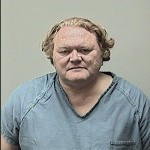
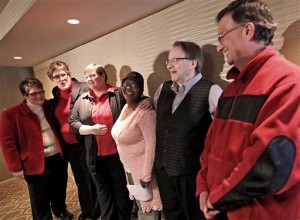
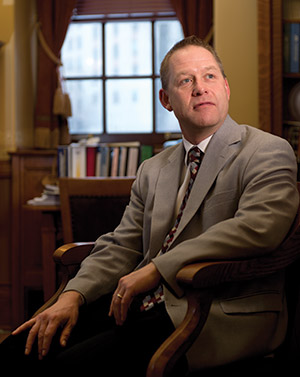
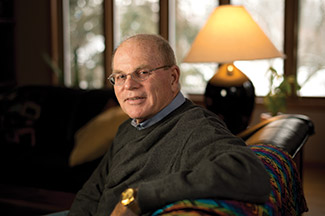
 The state’s civil courts are the realm of the rich, those who can afford as many lawyers as they need.
The state’s civil courts are the realm of the rich, those who can afford as many lawyers as they need.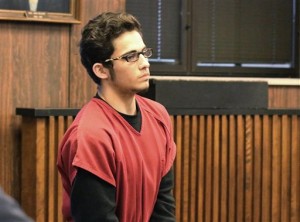
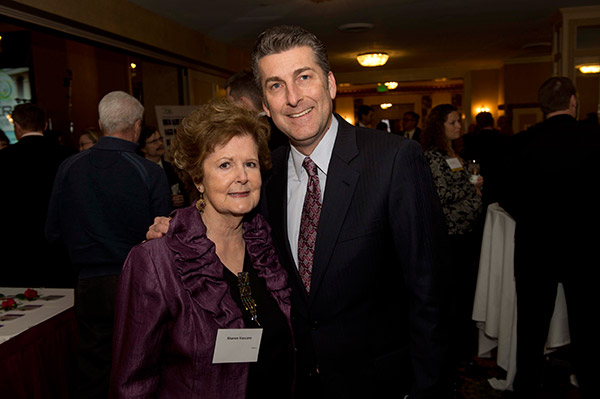
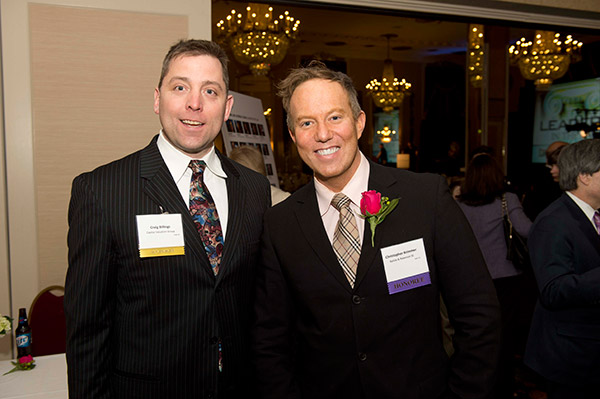
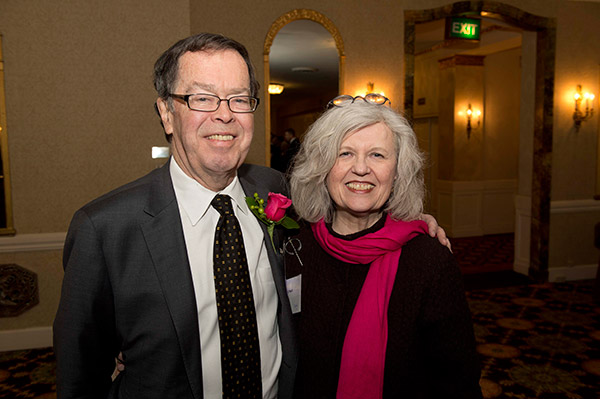
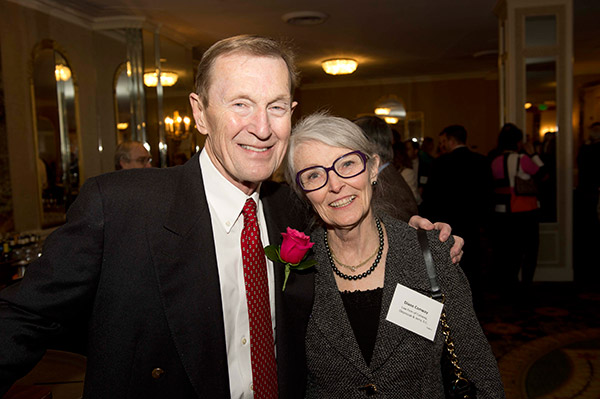
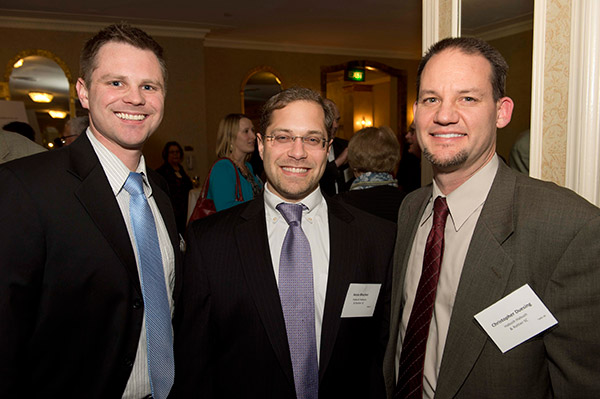








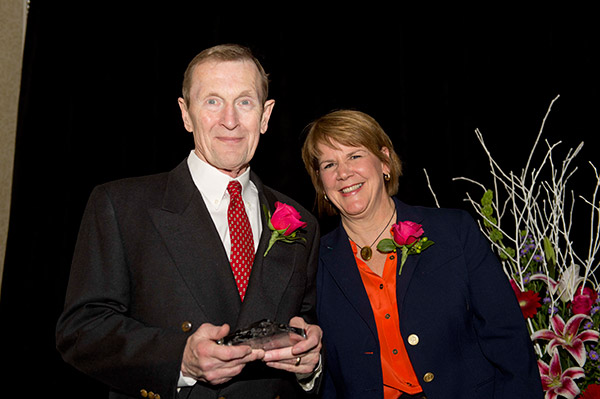

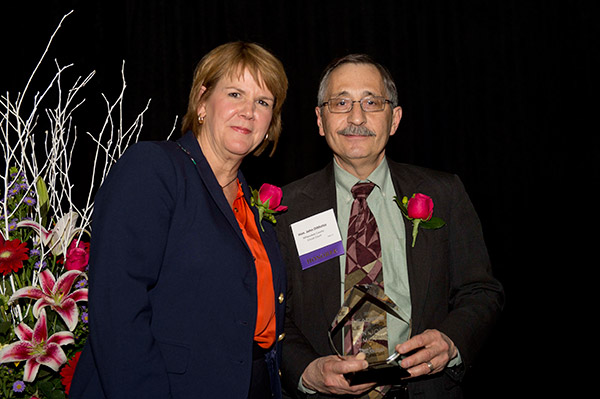





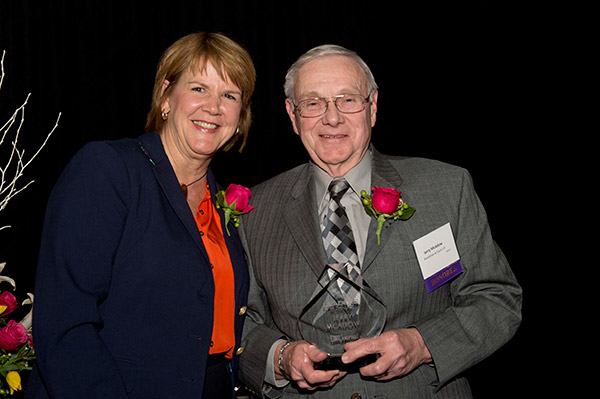



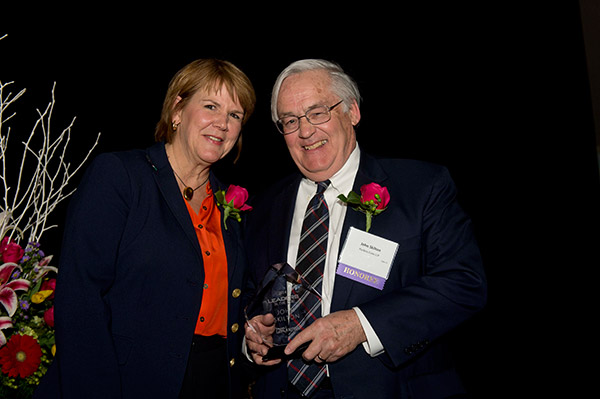







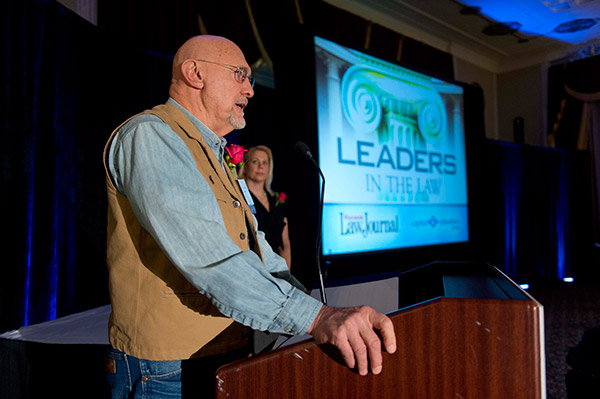
 Ross Anderson
Ross Anderson Jennifer Bias
Jennifer Bias Bruce Block
Bruce Block Steven Botzau
Steven Botzau Randal Brotherhood
Randal Brotherhood Louis B. Butler Jr.
Louis B. Butler Jr. Gregory Conway
Gregory Conway Francis Deisinger
Francis Deisinger Hon. John DiMotto
Hon. John DiMotto Robert Dreps
Robert Dreps Michael Green
Michael Green Kenneth V. Hallett
Kenneth V. Hallett Christopher Krimmer
Christopher Krimmer Vicki Margolis
Vicki Margolis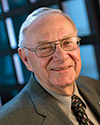 Jerry McAdow
Jerry McAdow Colleen Meloy
Colleen Meloy Bruce O’Neill
Bruce O’Neill Timothy Radelet
Timothy Radelet Donald Schott
Donald Schott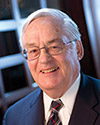 John Skilton
John Skilton Debra Tuttle
Debra Tuttle Daniel Vaccaro
Daniel Vaccaro Michael Van Sicklen
Michael Van Sicklen Ralph Weber
Ralph Weber Lifetime Achievement
Lifetime Achievement Lifetime Achievement
Lifetime Achievement